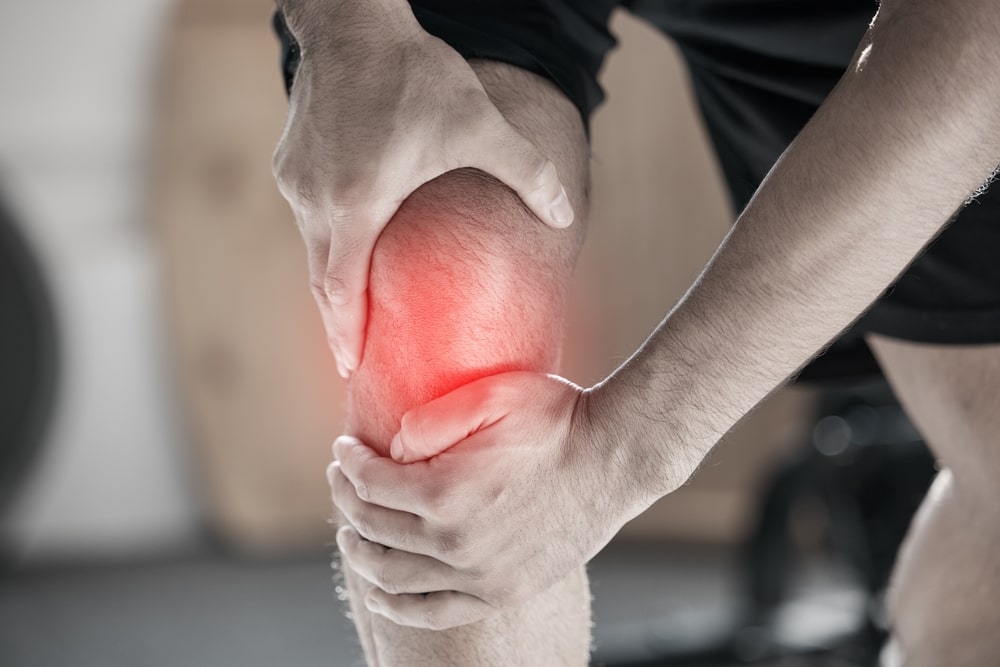Knee pain is a common issue that affects people of all ages, from young athletes to older adults. It can be caused by injuries, arthritis, overuse, or underlying medical conditions. If you’re experiencing knee pain, you might be wondering: What doctor should I see for knee pain? The answer depends on the nature and severity of your pain.
This guide will help you understand the different types of doctors who treat knee pain, what conditions they specialize in, and how to choose the best healthcare professional for your specific situation.
Understanding the Causes of Knee Pain

Before choosing a doctor, it’s essential to understand the possible causes of your knee pain. Some of the most common reasons include:
1. Injuries
- Ligament injuries (e.g., ACL, MCL tears) – Often occur in athletes and active individuals.
- Meniscus tears – Can result from twisting the knee or direct trauma.
- Fractures – Breaks in the knee bones due to trauma or osteoporosis.
- Dislocations – When the kneecap moves out of place.
2. Arthritis and Degenerative Conditions
- Osteoarthritis – Wear-and-tear arthritis common in older adults.
- Rheumatoid arthritis – An autoimmune condition that causes inflammation in the joints.
- Gout – A form of arthritis caused by uric acid buildup.
3. Overuse and Repetitive Strain Injuries
- Tendinitis – Inflammation of tendons, often from repetitive movement.
- Bursitis – Inflammation of the fluid-filled sacs (bursae) that cushion the knee.
4. Other Medical Conditions
- Infections – Can cause swelling, redness, and severe pain.
- Tumors – Though rare, they can occur in the knee joint.
Types of Doctors for Knee Pain
The type of doctor you should see for knee pain depends on the underlying cause of your discomfort. Here are the specialists who treat knee conditions:
1. Primary Care Physician (PCP)
If you have mild or occasional knee pain, your first step should be to visit a primary care physician (PCP). They can:
- Conduct an initial examination.
- Recommend lifestyle changes, physical therapy, or over-the-counter pain relief.
- Refer you to a specialist if needed.
2. Orthopedic Surgeons
An orthopedic surgeon specializes in musculoskeletal conditions, including knee injuries, arthritis, and structural disorders. They:
- Perform knee surgeries, such as ACL reconstruction or knee replacement.
- Offer nonsurgical treatments like injections and physical therapy.
- Diagnose and treat conditions like fractures, torn ligaments, and osteoarthritis.
You should see an orthopedic surgeon if you have:
Severe knee pain that doesn’t improve with rest or medication.
A known knee injury, such as a torn ACL or meniscus.
A knee condition requiring surgery (e.g., total knee replacement).
3. Sports Medicine Physicians
A sports medicine doctor is ideal for active individuals, athletes, and those with overuse injuries. They:
- Treat ligament injuries, tendinitis, and cartilage damage.
- Provide rehabilitation plans to help patients return to sports or physical activity.
- Use nonsurgical methods like physical therapy, bracing, and pain-relief injections.
See a sports medicine physician if you have:
A sports-related knee injury.
Pain due to repetitive movements or overuse.
No need for surgery but require expert rehabilitation.
4. Rheumatologists
A rheumatologist specializes in autoimmune and inflammatory conditions affecting the joints. They:
- Diagnose and treat rheumatoid arthritis, lupus, and gout.
- Provide long-term management for chronic inflammatory knee pain.
- Offer medications and therapies to reduce inflammation and pain.
You should see a rheumatologist if you have:
Knee pain accompanied by joint swelling, stiffness, or redness.
A family history of autoimmune diseases.
Symptoms like fever, fatigue, or unexplained joint pain.
5. Physiatrists (Physical Medicine and Rehabilitation Doctors)
A physiatrist focuses on nonsurgical treatments for musculoskeletal conditions. They:
- Help manage chronic pain and mobility issues.
- Use physical therapy, medications, and assistive devices for treatment.
- Work with patients recovering from knee injuries or surgeries.
See a physiatrist if you have:
Persistent knee pain that doesn’t require surgery.
Mobility limitations due to arthritis or past injuries.
A need for long-term rehabilitation and pain management.
6. Physiotherapists (Physical Therapists)
Though not medical doctors, physical therapists play a crucial role in knee pain recovery. They:
- Develop rehabilitation programs to improve strength and flexibility.
- Use exercises, manual therapy, and modalities like ultrasound and electrical stimulation.
- Help prevent future knee injuries by correcting movement patterns.
You should see a physical therapist if you have:
Post-surgical knee rehabilitation needs.
Muscle weakness or instability contributing to knee pain.
A desire to avoid surgery through conservative treatment.
Also Read: Burning Pain After Knee Arthroscopy – Causes, Management, and Recovery!
When to Seek Medical Attention for Knee Pain
While occasional knee pain might not require medical treatment, you should see a doctor if you experience:
- Severe pain that doesn’t improve with rest or over-the-counter medications.
- Swelling, redness, or warmth around the knee joint.
- Inability to bear weight on the affected knee.
- A popping sound or feeling of instability.
- Fever and joint pain (possible infection).
Diagnosis and Tests for Knee Pain
Your doctor may use several diagnostic methods to determine the cause of your knee pain:
- Physical examination – Checking range of motion, swelling, and tenderness.
- X-rays – To detect fractures, bone spurs, or arthritis.
- MRI scans – To assess soft tissue damage (ligaments, meniscus).
- CT scans – For detailed imaging of the bones and surrounding structures.
- Blood tests – To check for inflammatory or autoimmune conditions.
Treatment Options for Knee Pain
Depending on the diagnosis, treatment may include:
1. Conservative (Nonsurgical) Treatments
- Rest and Ice Therapy – Reducing inflammation and promoting healing.
- Physical Therapy – Strengthening muscles and improving mobility.
- Pain Medications – NSAIDs, corticosteroids, or injections.
- Bracing or Taping – Supporting the knee and reducing strain.
2. Surgical Treatments
- Arthroscopy – A minimally invasive procedure for repairing cartilage and ligaments.
- ACL Reconstruction – Rebuilding the anterior cruciate ligament.
- Total or Partial Knee Replacement – Replacing damaged knee joints with artificial implants.
Choosing the Right Doctor for Your Knee Pain
If you’re unsure what doctor to see for knee pain, use this guide:
| Condition/Symptom | Doctor to See |
| Mild knee pain or first-time injury | Primary Care Physician |
| Severe knee pain, fractures, or ligament tears | Orthopedic Surgeon |
| Sports-related injuries or overuse pain | Sports Medicine Physician |
| Inflammatory joint conditions | Rheumatologist |
| Chronic pain or nonsurgical rehab | Physiatrist |
| Post-injury rehabilitation | Physiotherapist |
FAQ’s
1. What are the main differences between an orthopedic surgeon and a sports medicine physician?
Orthopedic surgeons specialize in surgical and nonsurgical treatments for bone, joint, and muscle conditions, including knee injuries. Sports medicine physicians focus on nonsurgical treatments, rehabilitation, and injury prevention, especially for athletes and active individuals.
2. How do I choose between seeing a rheumatologist or an orthopedic surgeon for knee pain?
See a rheumatologist if your knee pain is due to an autoimmune or inflammatory condition like rheumatoid arthritis. See an orthopedic surgeon if your pain is from an injury, structural damage, or if surgery might be needed.
3. Are there specific symptoms that indicate I should see a rheumatologist for knee pain?
Yes. Signs that suggest an autoimmune or inflammatory cause include:
- Persistent joint swelling, redness, or warmth
- Morning stiffness lasting over 30 minutes
- Pain in multiple joints
- Fever, fatigue, or unexplained weight loss
4. Can a physiotherapist effectively treat severe knee injuries?
Physiotherapists play a crucial role in rehabilitation, but they cannot diagnose or perform surgery for severe injuries. They can help manage pain, improve mobility, and strengthen muscles, but severe injuries like ACL tears or fractures often require evaluation by an orthopedic surgeon.
5. What should I expect during my first appointment with a knee specialist?
Your doctor will:
- Review your medical history and symptoms
- Conduct a physical examination
- Possibly order imaging tests (X-rays, MRI)
- Discuss treatment options, including physical therapy, medications, or surgery if needed.
Final Thoughts
Knee pain can be frustrating, but choosing the right doctor ensures proper diagnosis and treatment. Whether it’s an orthopedic surgeon for surgery, a sports medicine doctor for rehabilitation, or a rheumatologist for autoimmune conditions, knowing what doctor to see for knee pain can make a huge difference in your recovery.






